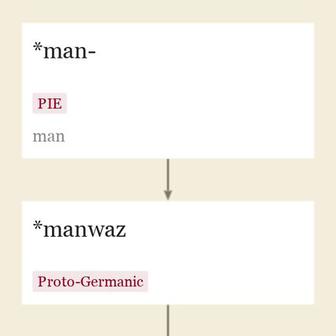nobleman n.
"
Entries linking to nobleman
c. 1200, "
Sense of "
I am as free as Nature first made Man,
Ere the base Laws of Servitude began,
When wild in Woods the noble Savage ran.
[Dryden, "Conquest of Granada," 1672]
A noble gas (1902) is so called for its inactivity or inertness; a use of the word that had been applied in Middle English to precious stones, metals, etc., that did not alter or oxidize when exposed to air (late 14c.), with noble in the sense of "

"
Sometimes connected to root *men- (1) "
Specific sense of "
Man also was in Old English as an indefinite pronoun, "
As "
Man-about-town "
So I am as he that seythe, 'Come hyddr John, my man.' [1473]
MANTRAP, a woman's commodity. [Grose, "Dictionary of the Vulgar Tongue," London, 1785]
At the kinges court, my brother, Ech man for himself. [Chaucer, "Knight's Tale," c. 1386]
"
updated on June 29, 2019